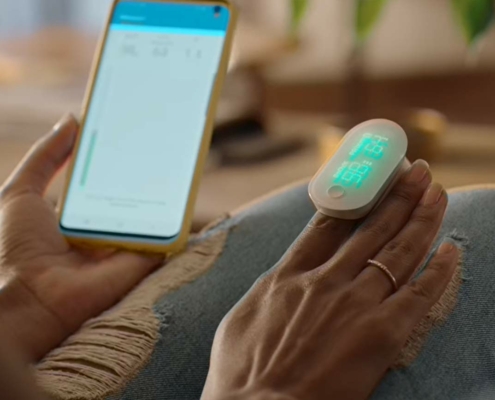System Usability Scale (SUS) Background
The System Usability Scale (SUS) is a popular tool for collecting subjective feedback from end users to evaluate the perceived usability of products and systems. It comprises a 10-item Likert scale questionnaire administered to users after they interact with a product. This SUS questionnaire gathers feedback on various aspects, including ease of use, complexity, and overall satisfaction. Responses to the questionnaire are converted to a SUS score which ranges from 0 to a 100. By assessing these factors, the SUS provides insights into the perceived usability of a product and facilitates comparisons with other products, helping identify areas for improvement.
SUS is used in many industries, such as healthcare, consumer electronics, automotive, and financial services. Its versatility and simplicity make it an effective tool for evaluating user experience in any field where understanding how users interact with products is important.
Application of SUS in Medical Device Development
Evaluating the usability of a medical device during product development is considered a best practice as per ISO 9241. The System Usability Scale (SUS) is a trusted tool to help evaluate how easy the device is to use from the user’s perspective. It is a powerful tool to assist in the assessment of a medical device to understand if the product meets these usability standards, uncovering issues that might not be apparent during the design phase.
The FDA and many other regulatory bodies require evidence of usability testing for medical devices. Using SUS can provide documented evidence of usability assessments and improvements, aiding in compliance with these FDA regulations.
Given that medical devices are often used by people with varying levels of knowledge, abilities, and technical skills across a variety of users, including patients, caregivers, and healthcare professionals, it is critical to make devices intuitive and easy to use. By addressing ease of use, SUS helps developers identify and evaluate improvements that allow end users the best experience when using the medical device whatever their knowledge, abilities and technical skills.
SUS Case Study
Improvita has leveraged the System Usability Scale to assess the ease of use of a software as a medical device (SaMD) in conjunction with Human Factors Testing. A total of 4 human factors studies for a novel SaMD that provided clinical decision support to healthcare professionals to characterize organ volume and progression of a rare disease were conducted and SUS scores were determined for each.
The clinical care workflows and communication between HCPs were complex, and thus to design user friendly software, these intricate workflows necessitated gathering of user insights to identify user experience considerations throughout the development process. Participants included healthcare professionals who completed test cases using mock data. Participants had no prior experience with the software and received no training on the system. Participants then completed an SUS questionnaire. In each study, a SUS score was calculated. A total of 79 participants across the 4 human factors studies contributed to the SUS scores: 37 specialists, 28 radiologists and 14 support staff. The global SUS score for the SaMD went from 72 to 80 from the first study to the fourth study, showing an 8-point increase.
The improvement in SUS results over time demonstrate the impact of iterative improvements in the design and usability of the SaMD. The improved SUS scores for the SaMD provided evidence that the perceived usability is above average and comparable to the average SUS score for the top 10 apps across iPhone, Android and tablets at the time.
Why Choose Improvita for SUS?
Improvita has extensive experience and knowledge of conducting Human Factors & Usability Testing activities which includes incorporating the System Usability Scale (SUS) for collecting usability data. We support medical device development with the user needs front and center. We have a proven history of helping clients obtain FDA approval of their products by supporting risk identification and mitigation strategies elucidated through the Human Factors & Usability Testing process.
To learn more about Improvita’s Human Factors & Usability Testing consulting services, contact us to discuss your specific needs.
